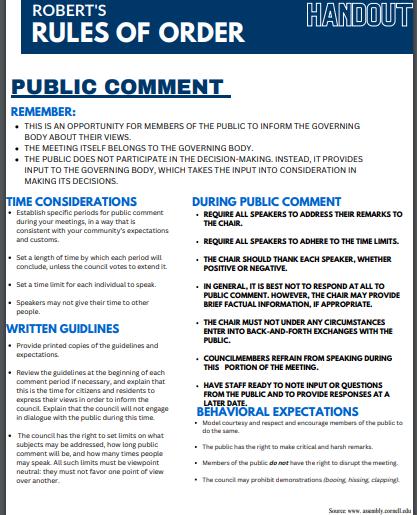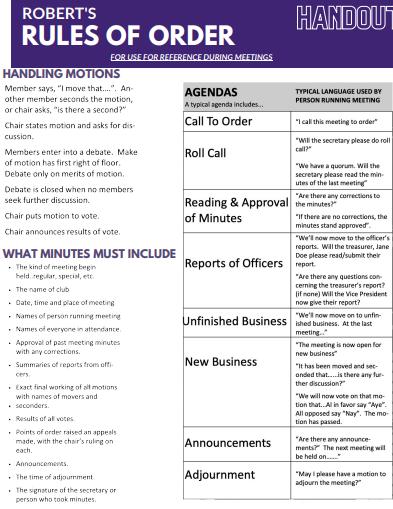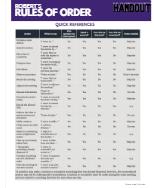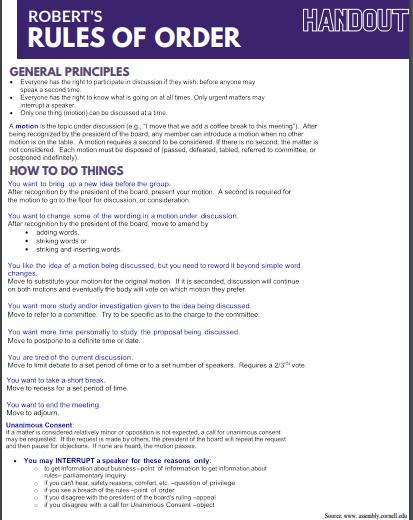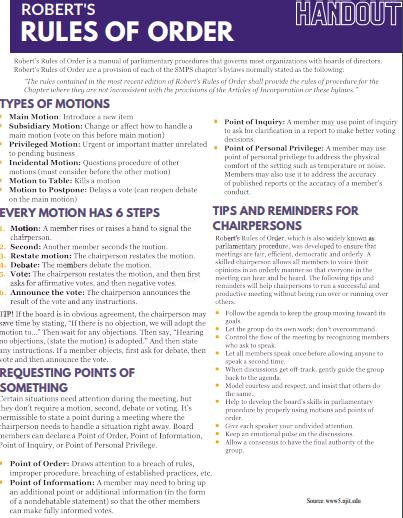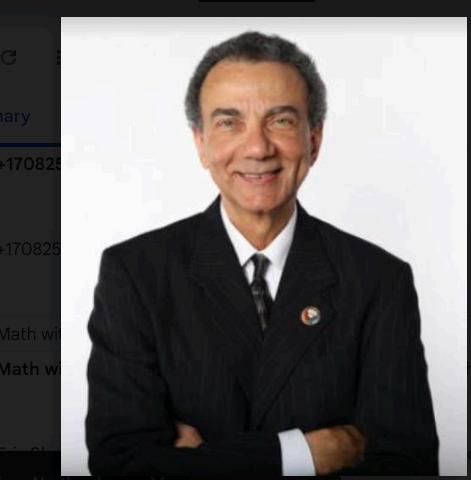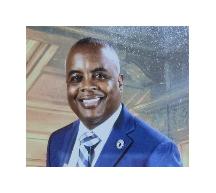



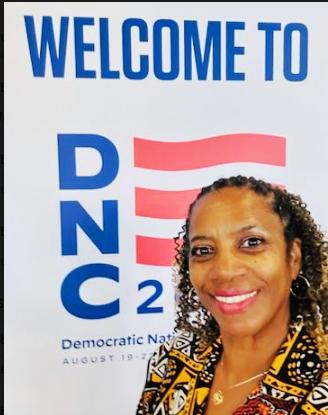

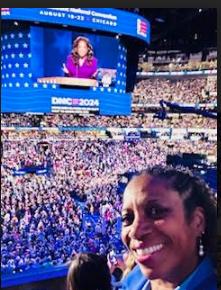
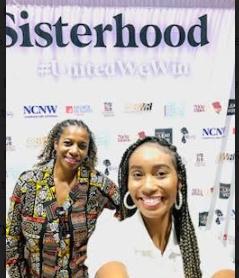

On August 21, 2024, I had the privilege of attending the historic Democratic National Convention an experience that will forever be etched in my heart and mind. As the United Center buzzed with joy and energy, filled by speakers, delegates, and supporters of presidential candidate Vice President Kamala Harris, I couldn’t help but think of how thrilled my mom would have been to witness such a momentous event She would have eagerly joined her children in discussions about the speeches, analyzing the topics on CNN, MSNBC, and WVON
My mom was my ‘shero ’ She instilled in us the importance of voting and making a difference in the world. As a dedicated union representative and a tireless advocate for social justice, she was the voice for her fellow workers. She participated in voter registration drives at Rainbow PUSH, at church, and even on charter buses to Washington, D.C., to march for workers’ rights. Despite the challenging conditions my parents faced working in manufacturing plants where the heat was stifling, and wages and benefits were inadequate they always wanted more for their children and grandchildren. They understood that the power of the vote was the key to a brighter future.
As an educator, I empowered my students by having them research key issues of each political party, engage in mock debates, and participate in simulated elections These activities equipped them with the knowledge and resources they would need when they became eligible to vote
I am committed to educating others about the importance of voting and understanding candidates’ platforms on crucial issues like education, healthcare, housing, and the economy issues that will shape our future for years to come.
If we desire a better country, our efforts must start at the local level. We need to register our family, friends, and neighbors to vote and encourage them to research the platforms of the candidates. To have a meaningful voice on the national stage, we must increase voter participation in our local communities. We cannot sit idly by and expect others to solve all the problems. When our children or grandchildren ask us what we did to improve the quality of life in our country, what will our answer be?
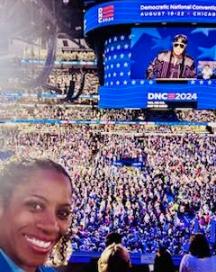
Let’s be the change we want to see Let’s make voting a family affair and engage in the electoral process as if our future depends on it because it does!
“Everybody can be great because everybody can serve.”
- Rev Dr Martin Luther King, Jr
“Investing in education today is the substance of future wealth.”
- Deborah Birmingham, M.Ed., M.A

Kamala Harris
Age: 59
Party: Democrat
Born: Oakland, California

Vice President Kamala Harris announced her candidacy for the Democratic nomination for president after Biden withdrew from the ticket and endorsed her on July 21. Harris would be the first Black woman and first Asian American to lead the ticket of a major political party. The daughter of immigrants from India and Jamaica, Harris grew up in Oakland and spent much of her political career in California’s Bay Area. As a US senator, Harris was known for her prosecutorial questioning style during hearings with Trump administration officials and nominees, including Attorney General Jeff Sessions and future Supreme Court Justice Brett Kavanaugh.
Past experience
Harris is the current vice president and the highestranking female political official in US history. She previously served as a US senator, California attorney general and the San Francisco district attorney.
Key policy issues
Harris’ initial campaign speeches offer some insights into her priorities, though she’s mainly voiced general talking points and not more nuanced plans. Like Biden, she intends to contrast her vision for America with Trump’s. She said the path forward will focus on lifting up working and middle-class Americans, enabling them to join unions, retire with dignity, live without the fear of gun violence and obtain affordable health care.
�� Kamala Harris' campaign promises so far
Donald Trump
Age: 78
Party: Republican
Born: Queens, New York

Former President Donald Trump launched his bid to reclaim the White House in November 2022, aiming to become only the second commander in chief to win two nonconsecutive terms. Trump continues to deny the outcome of the 2020 election that he lost to Joe Biden and promotes baseless conspiracy theories about election fraud. He was twice impeached by the US House of Representatives, including for his role in inciting the deadly January 6, 2021, insurrection at the US Capitol following his electoral defeat. In May 2024, Trump was found guilty of all charges at his New York hush money criminal trial. He also faces charges in three other cases, including over his efforts to overturn the 2020 election and his alleged mishandling of classified documents after leaving office.
Past experience
Trump graduated from the University of Pennsylvania with a bachelor’s degree in economics. Before launching his successful 2016 presidential bid, Trump was a real estate developer, businessman and a reality television star as host of “The Apprentice.”
Key policy issues
If he wins another term, Trump has said he would overhaul key factions of the federal government and slash social safety net programs. He has also vowed retribution against his political opponents and has said he would appoint a special prosecutor to “go after” Biden and his family.
�� Trump’s campaign promises so far
Democrats are also sometimes called ‘the left’, ‘left-wing’, ‘liberals’, or ‘progressives’. The symbol of the Democratic Party is the donkey. A state where more people vote for Democrats than Republicans is sometimes called a ‘blue state’
Not all Democrats believe in all of the same things, but generally these are the things many Democrats agree on:
Rich people and big businesses should pay more tax than poor people.
The government should spend more money on services for citizens, such as education (schools), infrastructure (better roads and buildings, for example), health care, and clean energy.
The government should control some things more carefully, for example, guns, pollution, and other things that could hurt people.
A political party is a group of voters who want the same things and work together to make those things happen. Examples of political parties in the US include the Democrats and Republicans. Every four years the party holds a National Convention (a big meeting) where they agree on the person they want to run for President. This person is called their “candidate”
The two main political parties in the US are symbolized by two distinct animals: an elephant for Republicans and donkey for Democrats
The two animals appear every election cycle, with illustrations of donkeys and elephants showing up in countless political cartoons, campaign ads and internet memes
The reasoning behind both animals dates back to the 19th century, between 150 to 200 years ago
During the 1828 presidential campaign for Andrew Jackson, who became the seventh US president, his opponents called him a jackass, which is a less-flattering term for a donkey
Instead of rejecting the derogatory term, Jackson embraced it, and rather than be offended by the name-calling, he was amused by it and used the image of a donkey in his campaign posters
Jackson went on to defeat incumbent John Quincy Adams to serve as America’s first Democratic president using the jackass as the party's symbol
However, it took several decades before the donkey became synonymous with the entire Democratic party when political cartoonist Thomas Nast helped popularize the animal by using it in his cartoons during the 1870s
The elephant took a different road to become the symbol of the opposing party
The Republican Party itself was formed in 1854, and six years later, Abraham Lincoln became its first member elected to the White House in 1860
During the American Civil War, which began in 1861 during Lincoln's presidential term, the image of an elephant was featured as a Republican symbol in at least one political cartoon and a newspaper illustration Soldiers used the term “seeing the elephant” as an expression meaning experiencing combat, and Nast later translated the animal into his political cartoons portraying the Republican party
In 1874, Nast used the elephant in Harper's Weekly magazine, and that is when the elephant started to take hold as the Republican party's symbol and is now synonymous with the party
Two different animals Two different paths Two different parties: the Democratic donkey and the Republican elephant
R e p u b l i c a n P a r t y
Republicans are sometimes called ‘the right’, ‘right-wing’, or ‘conservatives’.
The Republican Party itself is also known as the GOP, which stands for “Grand Old Party.” The symbol of the Republican party is the elephant. A state where more people vote for Republicans than Democrats is sometimes called a ‘red state’.
Not all Republicans believe in all of the same things, but generally these are some things many Republicans agree on:
The government should lower taxes, especially on rich people and big businesses.
The government should spend less money on services for citizens, such as education, health care, and support for poor people.
The government should spend more money on the military (the army and navy, for example) and on weapons.
The government should not control guns, pollution, or other possibly unsafe things because businesses and people can decide for themselves.
5 FACTS ABOUT AMERICA’S POLITICAL PARTIES
The Democratic Party is a little older than the Republican.
The Democratic Party was founded around 1828 by supporters of Andrew Jackson, while the GOP emerged in 1854 to combat the expansion of slavery into American territories.
2. Abraham Lincoln was our first Republican president.
With the Party’s success in guiding the Union to victory in the Civil War, and the Party’s role in the abolition of slavery, the Republican Party dominated the national political scene until 1932.
3. The Great Depression changed the political landscape.
The GOP lost its congressional majorities during the Great Depression; under President Franklin D. Roosevelt, the Democrats formed a winning New Deal coalition that was dominant through 1964.
4. The paradigm shifted in the mid-’60s.
After the Civil Rights Act of 1964 and the Voting Rights Act of 1965, the core bases of the two parties shifted, with Southern states becoming more Republican in presidential politics and the Northeastern states becoming more Democratic.
5. There have been 15 Democrats in the White House and 19 Republicans.
Why Democrats are donkeys and Republicans are elephants Elephants & Donkeys used in U.S. Politics
L A B O R D A Y
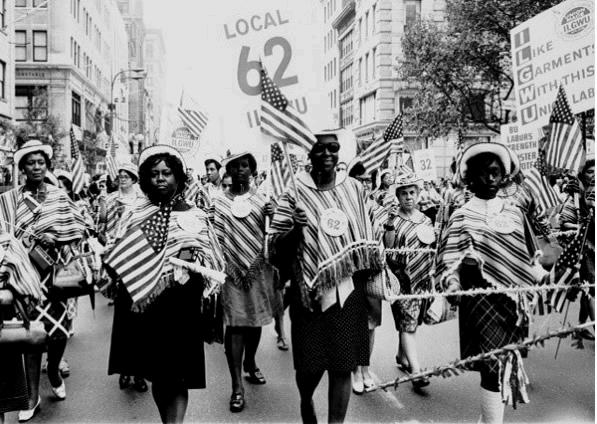
Observed the first Monday in September, Labor Day is an annual celebration of the social and economic achievements of American workers. The holiday is rooted in the late nineteenth century, when labor activists pushed for a federal holiday to recognize the many contributions workers have made to America’s strength, prosperity, and well-being.
Before it was a federal holiday, Labor Day was recognized by labor activists and individual states. After municipal ordinances were passed in 1885 and 1886, a movement developed to secure state legislation. New York was the first state to introduce a bill, but Oregon was the first to pass a law recognizing Labor Day, on February 21, 1887. During 1887, four more states – Colorado, Massachusetts, New Jersey and New York – passed laws creating a Labor Day holiday. By the end of the decade Connecticut, Nebraska and Pennsylvania had followed suit. By 1894, 23 more states had adopted the holiday, and on June 28, 1894, Congress passed an act making the first Monday in September of each year a legal holiday.
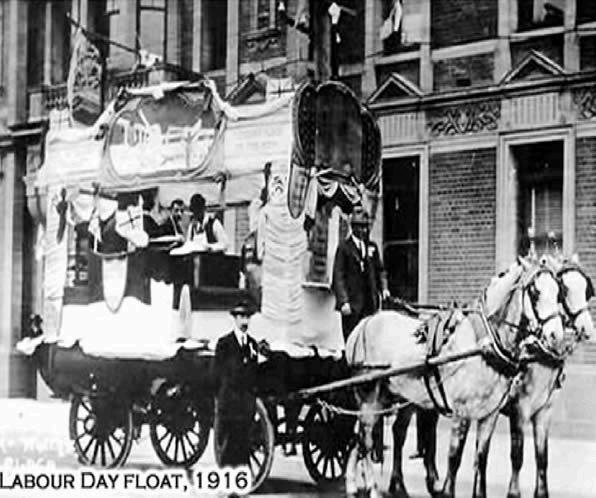
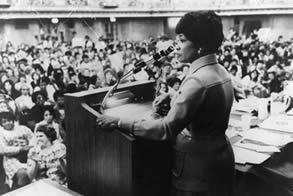
Labor Hall of Honor
Curious about America’s labor leaders? Check out the Labor Hall of Honor to learn more about the men and women who have improved working conditions, wages, and quality of life for America's working families.
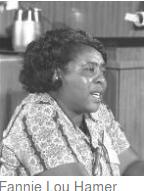
F a n n i e L o u H a m e r
I'm Sick and Tired of Being Sick and Tired
– Dec. 20, 1964
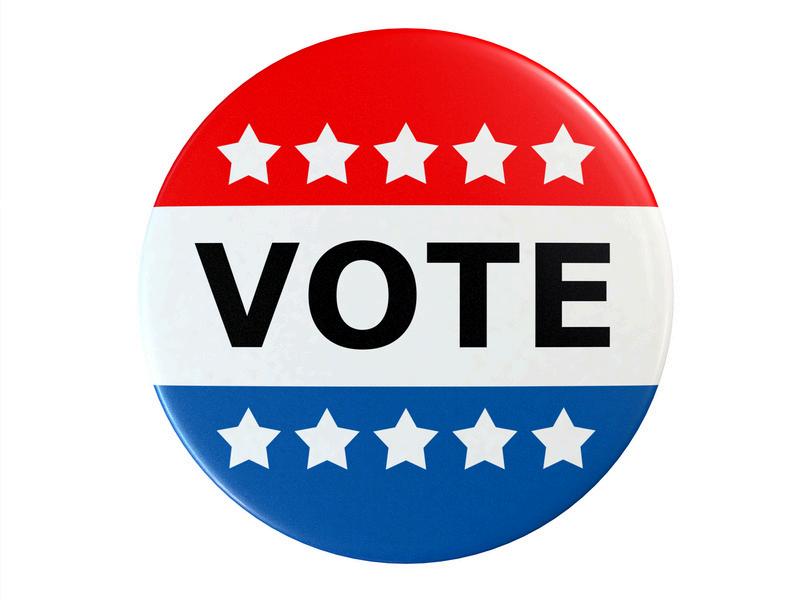
H a m e r d e l i v e r e d t h i s s p e e c h w i t h M a l c o l m X a t a r a l l y a t t h e W i l l i a m s I n s t i t u t i o n a l
C M E C h u r c h , H a r l e m , N e w Y o r k , t h a t w a s o r g a n i z e d t o s u p p o r t t h e M i s s i s s i p p i
F r e e d o m D e m o c r a t i c P a r t y ' s C o n g r e s s i o n a l C h a l l e n g e
M y n a m e i s F a n n i e L o u H a m e r a n d I e x i s t a t 6 2 6 E a s t L a f a y e t t e S t r e e t i n R u l e v i l l e ,
M i s s i s s i p p i . T h e r e a s o n I s a y " e x i s t " [ i s ] b e c a u s e w e ' r e e x c l u d e d f r o m e v e r y t h i n g i n
M i s s i s s i p p i b u t t h e t o m b s a n d t h e g r a v e s . T h a t ' s w h y i t i s c a l l e d t h a t i n s t e a d o f t h e
" l a n d o f t h e f r e e a n d t h e h o m e o f t h e b r a v e . " i t ' s c a l l e d i n M i s s i s s i p p i " t h e l a n d o f
t h e t r e e a n d t h e h o m e o f t h e g r a v e "
I t w a s t h e 3 1 s t o f A u g u s t o f 1 9 6 2 , t h a t e i g h t e e n o f u s t r a v e l e d 2 6 m i l e s t o t h e c o u n t y
c o u r t h o u s e i n I n d i a n o l a , M i s s i s s i p p i , t o t r y t o r e g i s t e r t o b e c o m e f i r s t - c l a s s c i t i z e n s .
I t w a s t h e 3 1 s t o f A u g u s t i n 1 9 6 2 , t h a t I w a s f i r e d f o r t r y i n g t o b e c o m e a f i r s t - c l a s s c i t i z e n .
W h e n w e g o t t o I n d i a n o l a o n t h e 3 1 s t o f A u g u s t i n 1 9 6 2 , w e w a s m e t t h e r e b y t h e
s t a t e h i g h w a y p a t r o l m e n , t h e c i t y p o l i c e m e n a n d a n y b o d y a s s o m e o f y o u k n o w
t h a t h a v e w o r k e d i n M i s s i s s i p p i , a n y w h i t e m a n t h a t i s a b l e t o w e a r a k h a k i p a i r o f
p a n t s w i t h o u t t h e m f a l l i n g o f f h i m a n d h o l d i n g t w o g u n s c a n m a k e a g o o d l a w
o f f i c e r s o w e w a s m e t b y t h e m t h e r e .
A f t e r t a k i n g t h i s l i t e r a c y t e s t , s o m e o f y o u h a v e s e e n i t , w e h a v e 2 1 q u e s t i o n s a n d
s o m e i s n o t q u e s t i o n s . I t b e g a n w i t h : " W r i t e t h e d a t e o f t h i s a p p l i c a t i o n . W h a t i s
y o u r f u l l n a m e . B y w h o m a r e y o u e m p l o y e d " s o w e c a n b e f i r e d b y t h e t i m e w e g e t b a c k h o m e " A r e y o u a c i t i z e n o f t h e U n i t e d S t a t e s a n d a n i n h a b i t a n t o f
M i s s i s s i p p i . H a v e y o u e v e r b e e n c o n v i c t e d o f a n y o f t h e f o l l o w i n g c r i m e s . " w h e n , i f t h e p e o p l e w o u l d b e c o n v i c t e d o f t h e f o l l o w i n g c r i m e s , t h e r e g i s t r a r w o u l d n ' t b e
t h e r e B u t a f t e r w e g o t h r o u g h t h i s p r o c e s s o f f i l l i n g o u t t h i s l i t e r a c y f o r m , w e a r e
a s k e d t o c o p y a s e c t i o n o f t h e c o n s t i t u t i o n o f M i s s i s s i p p i a n d a f t e r w e ' v e c o p i e d t h i s
s e c t i o n o f t h e c o n s t i t u t i o n o f M i s s i s s i p p i w e a r e a s k e d t o g i v e a r e a s o n a b l e i n t e r p r e t a t i o n t o t e l l w h a t i t m e a n t , w h a t w e j u s t c o p i e d t h a t w e j u s t s e e n f o r t h e f i r s t t i m e .
A f t e r f i n i s h i n g t h i s f o r m , w e s t a r t e d o n t h i s t r i p b a c k t o R u l e v i l l e , M i s s i s s i p p i , a n d w e w a s s t o p p e d b y t h e s a m e c i t y p o l i c e m a n t h a t I h a d s e e n i n I n d i a n o I a a n d a s t a t e h i g h w a y p a t r o l m a n . W e w a s o r d e r e d t o g e t o f f t h e b u s . A f t e r w e g o t o f f t h e b u s , w e w a s o r d e r e d t o g e t b a c k o n t h e b u s a n d t o l d t o g o b a c k t o I n d i a n o l a . W h e n w e g o t
b a c k t o I n d i a n o l a t h e b u s d r i v e r w a s c h a r g e d w i t h d r i v i n g a b u s t h e w r o n g c o l o r .
T h a t ' s v e r y t r u e . T h i s s a m e b u s h a d b e e n u s e d y e a r a f t e r y e a r t o h a u l p e o p l e t o t h e
c o t t o n f i e l d s t o p i c k c o t t o n a n d t o c h o p c o t t o n B u t , t h i s d a y , f o r t h e f i r s t t i m e t h a t
t h i s b u s h a d b e e n u s e d f o r v o t e r r e g i s t r a t i o n i t h a d t h e w r o n g c o l o r T h e y f i r s t c h a r g e d t h i s m a n o n e h u n d r e d d o l l a r s A n d f r o m a h u n d r e d d o l l a r s t h e y c u t d o w n t o
f i f t y . A n d f r o m f i f t y t o t h i r t y , a n d a f t e r t h e y g o t d o w n t o t h i r t y d o l l a r s t h e e i g h t e e n
o f u s h a d e n o u g h a m o n g o u r s e l v e s t o p a y h i s f i n e .
F a n n i e L o u H a m e r - F u l l S p e e c h D e c . 1 9 6 4
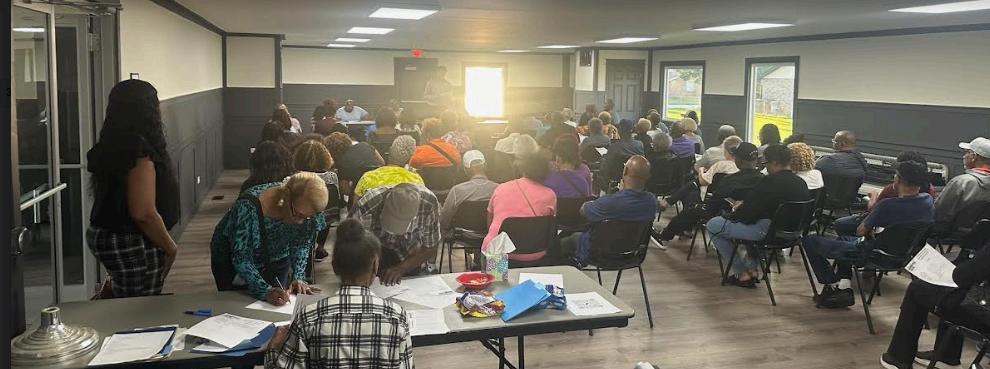
List of terms
Assessed Value.
State Equalizer
Local Tax Rate
Homeowners Exemption
Senior Exemption
Do you understand how your tax bill is created?
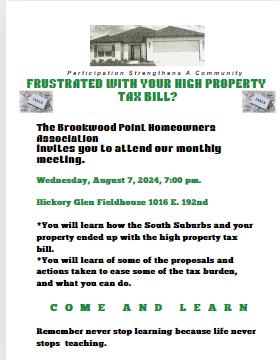
The Assessed Value is provided by the Cook County Assessor with the blessing of the Cook County Board and Commissioners. The Assessor uses an automated value model to estimate the value of your home. In the appraisal profession qualitative and quantitative analysis is used to value your home. The Assessor has stated that they do not use MLS data, nor do they use data from the Cook County Recorder which is in the same building.
The State Equalizer was increased to 3.0163. That increase was approved by your state legislators.
The Local Tax Rate is calculated by the Cook County Clerks Tax Extension unit. It is the combined rate of all the local taxing bodies. Again, your Cook County Commissioners and government are responsible for this.
The Homeowners Exemption was decreased. Do you know how the formula is calculated? The exemption is calculated by multiplying $10,000 by your local tax rate of 14.743%. Would it not have been smart for your elected officials to change the formula so that the homeowner’s exemption would have increased. Ask yourself why this is all so complicated?
Does anyone know how the Senior Exemption is calculated? The Senior Exemption is calculated by multiplying $8,000 times the local tax rate of 14.743%. Why is the Senior Exemption also decreased and less than the Homeowner’s Exemption? Again, your Cook County Government is not working in your best interest. Contact your Cook County Commissioner Donna Miller.
The latest tax bill is the most egregious attempt to increase the number of South Suburban Residents losing their homes to either foreclosure or tax sale. This will reduce the sales volume and reduce the value of your homes. This will cause more investors to buy homes at lower prices and turn Glenwood into a rental home market. It’s up to you to fight or not.
The Village of Glenwood has a good deal of culpability in this. The Village of Glenwood has made zero interest loans with 50% of the loan forgiveness. One lucky recipient has stated that they won’t even pay back the 50% that they borrowed. No action has been taken by the Village of Glenwood for a loan that is over one year in arrears. The Village of Glenwood has an arrangement to give the Anytime Fitness developer Ralph Edgar a 60% rebate on his taxes. Would you like a 60% rebate?
There are options. File an appeal, then the Board of Appeals, then lawsuit or PTAB. Those are your options. Lastly, I have asked that President Gardiner declare a 4 million dollar TIF Surplus and that those funds be used to give each owner occupied resident of Glenwood a $500.00 tax rebate. Please join me in support for this long overdue tax relief.
August 22, 2024
Dear President Gardiner,
Because of your absence at the August 20th village board meeting, I have to reply by email.
Since you had the Village Attorney respond to the emails from the residents of Glenwood instead of responding to your constituents, this is a follow up email.
The Industrial Park TIF, the Halsted-Holbrook TIF, and the Main Street TIF are all expiring in either tax year 2025 or tax year 2026. Those three TIF Districts must be allowed to expire to assist in lowering our tax bills.
You have used TIF funds as your personal slush fund for too long. You have exchanged TIF funds for campaign donations for too long.
Keep an Eye on Money in Illinois Politics
www.illinoissunshine.org
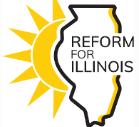
The concerned residents will be recommending and submitting a budget for the use of taxpayers’ dollars.
Ed Hadnott
President Gardiner,
You stated when I was a Board member that you demanded decorum. Obviously, you have not taught your current Board members which are all in your political party Board etiquette.
Please share this with them so they can learn what they are supposed to do. President Asselborn taught government. President Durkin taught government. Tell your appointed Trustee to follow these instructions to the letter.
Ed Hadnott
Robert Rules of Order - Public Comment link
